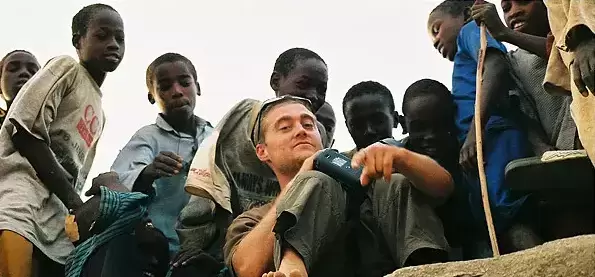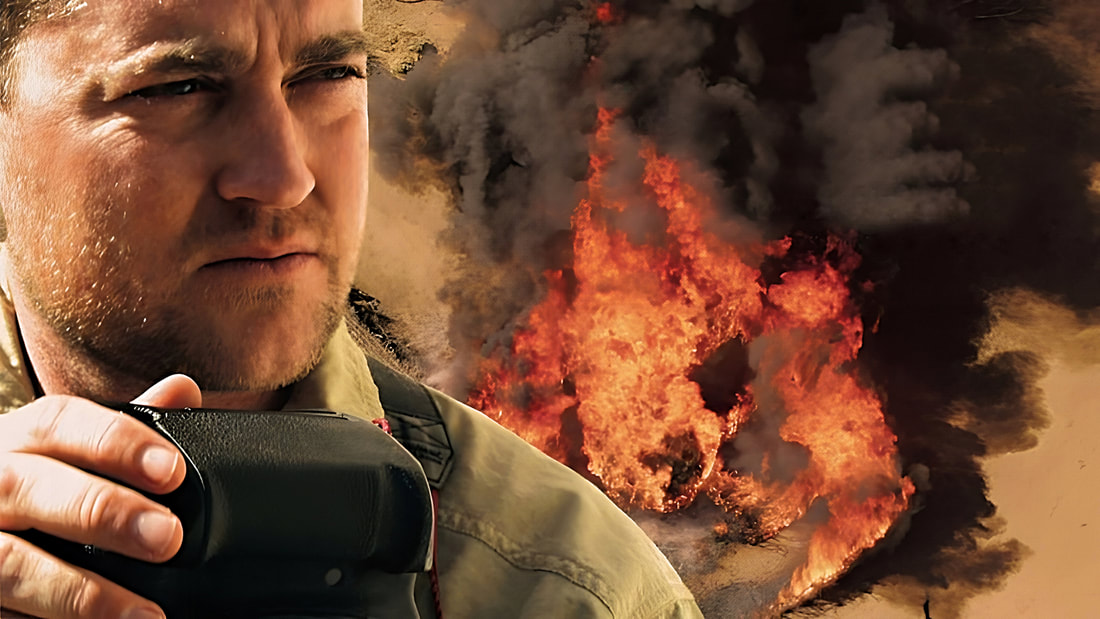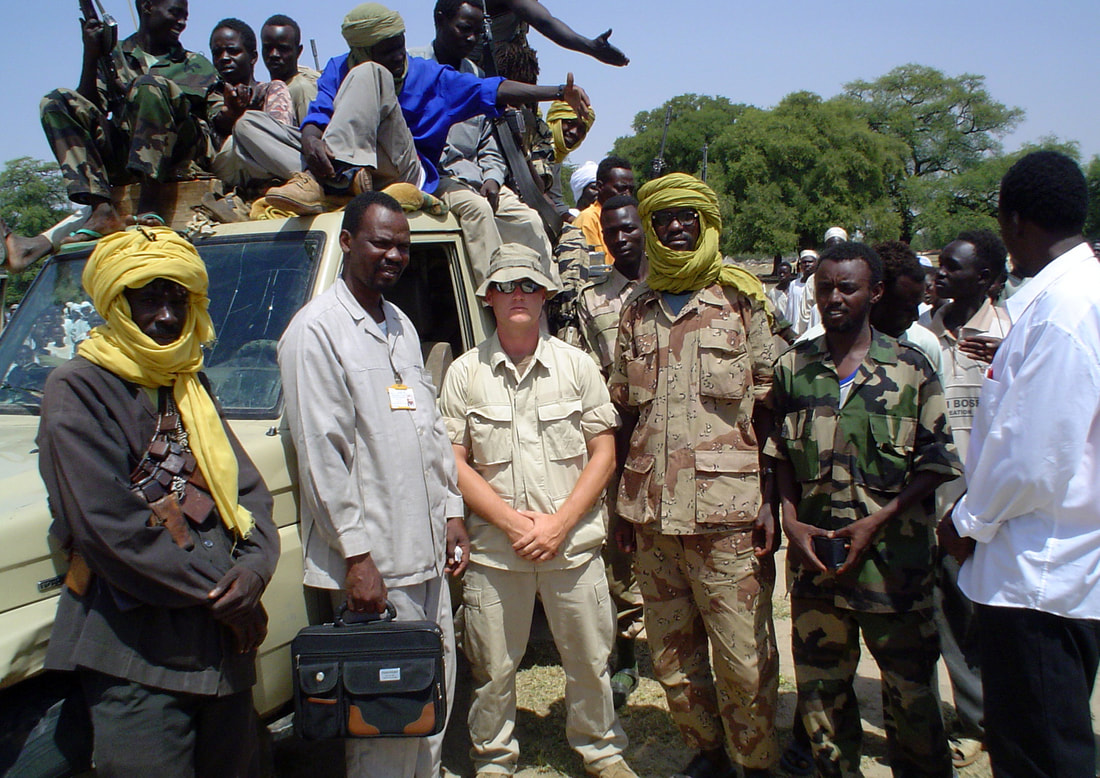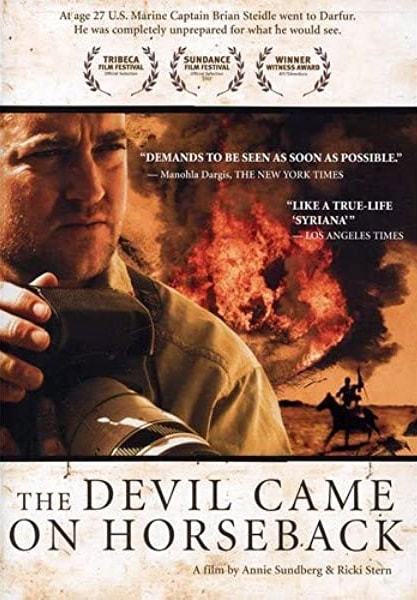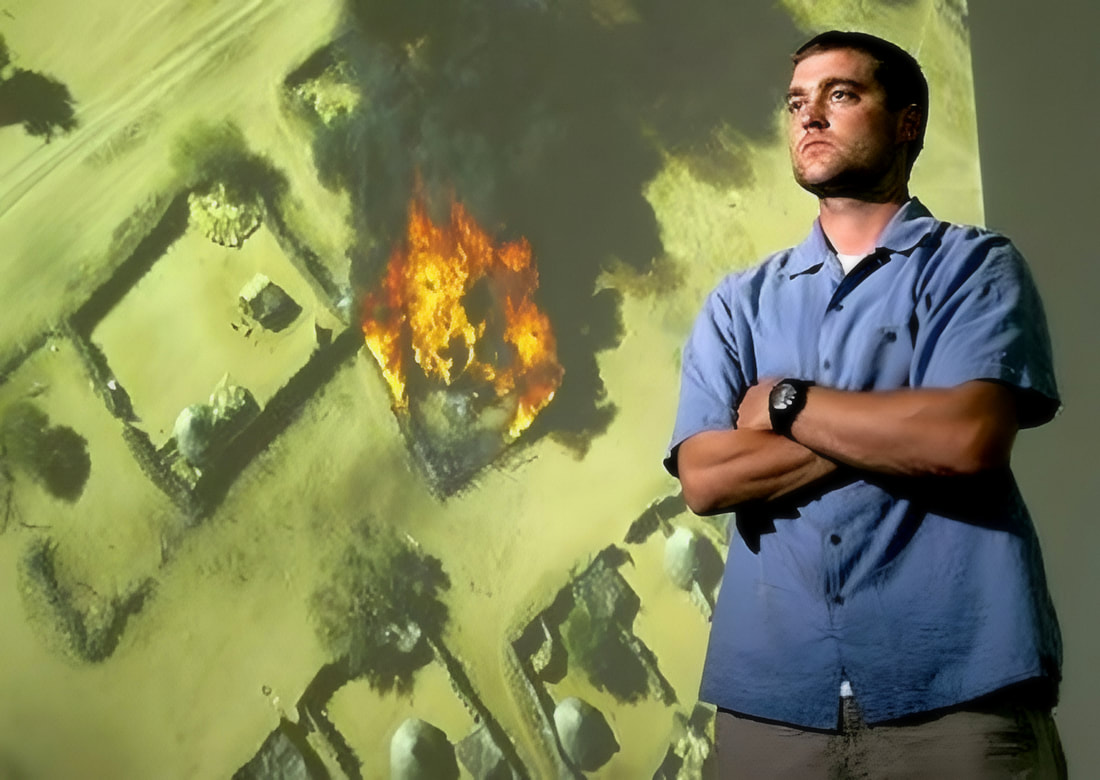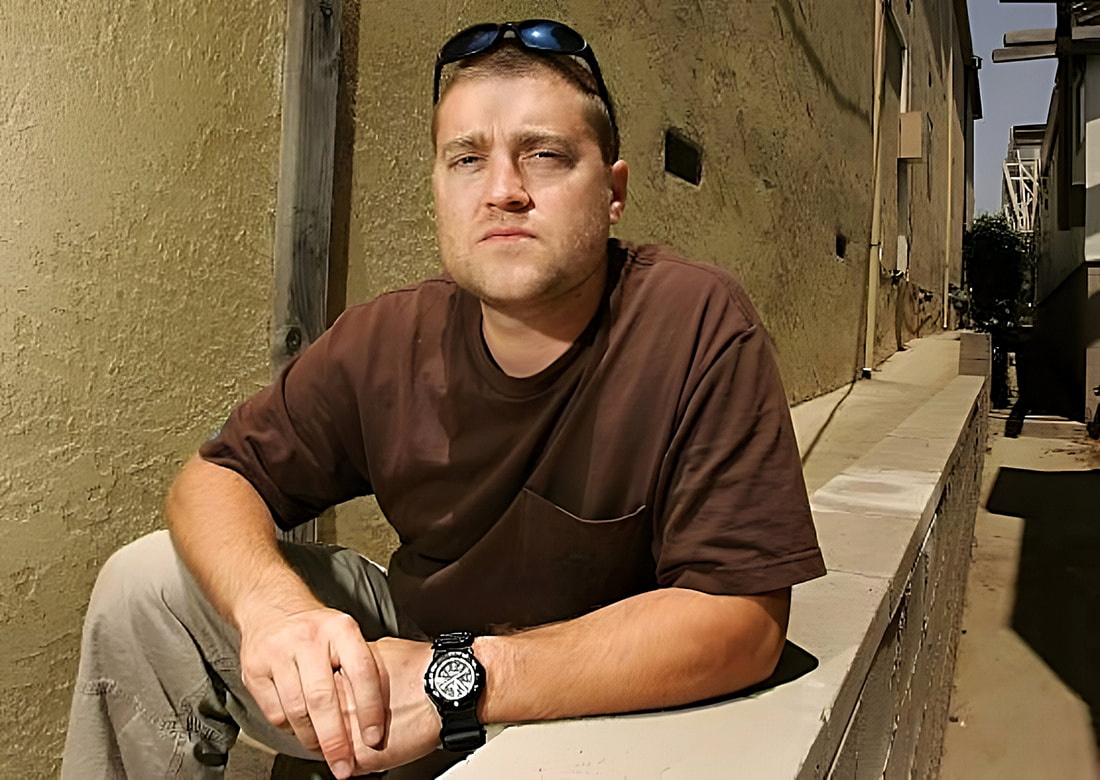BRIAN STEIDLE APPRECIATION PAGE
Brian Steidle is a former Marine Corps captain, military and security operations expert, and author who had worked on publicizing the Darfur conflict in Sudan. Steidle wrote a book, The Devil Came on Horseback, about his experience, which was turned into a documentary film that premiered in 2007.
In September 2004, at the age of 27, Steidle accepted an assignment as a military observer for the African Union (AU) in the Darfur region of western Sudan. He went to Darfur armed only with a notebook and a camera.
In September 2004, at the age of 27, Steidle accepted an assignment as a military observer for the African Union (AU) in the Darfur region of western Sudan. He went to Darfur armed only with a notebook and a camera.
His role was to monitor the cease fire between the two main rebel groups and the Sudanese Government. Additional roles included advising the AU on logistics and intelligence. Steidle witnessed the murders of thousands of people, but was not permitted to intervene, though he photographed what he witnessed. At that time, his reports where widely ignored by the United Nations Organisation (UNO). What was hardest for Steidle was the utter complacency of the U.N., the U.S. and the world's other powers mutely observing what can only be called genocide. After his 13-month contract in Sudan was completed, he resigned the position and returned to the United States.
Steidle returned to Sudan in 2006 to further document and publicize the events taking place there. He wrote of his experiences in Darfur in his book The Devil Came on Horseback, a reference to the Janjaweed faction that has been responsible for much of the genocide in Darfur. An award-winning documentary film of the same title was also produced about Steidle's story. Steidle appears throughout the film, narrating what he witnessed and interviewing survivors in Darfur.
Since his return from Sudan, Steidle has spoken at more than 500 venues, providing expertise on Sudan and raising awareness of human rights violations and atrocities.
In his six months in Sudan, Steidle took over 700 pictures, many of which were villages being destroyed and murdered civilians. His photographs, along with thousands of pages of witness interviews, became evidence for the prosecution of war crimes.
In his six months in Sudan, Steidle took over 700 pictures, many of which were villages being destroyed and murdered civilians. His photographs, along with thousands of pages of witness interviews, became evidence for the prosecution of war crimes.
From January–May 2010, Steidle acted as a consultant and volunteer in Port-au-Prince, Haiti, following the devastating earthquake. He conducted search, rescue and recovery efforts at the Hotel Montana, Pétion-Ville, Haiti. In addition to this he coordinated transportation, security, support and guidance to NGOs and volunteers. Using his military experience and desire to help those less fortunate he advised the Haitian Ministry of Justice, Police Chief and SWAT Commanders during human trafficking investigations.
Furthermore, Steidle helped with the installation of solar lighting and charging stations in Port-au-Prince, Haiti; constructed water filters and provided clean drinking water to hundreds of families.
Furthermore, Steidle helped with the installation of solar lighting and charging stations in Port-au-Prince, Haiti; constructed water filters and provided clean drinking water to hundreds of families.
Since then, Steidle acted as Security and Logistics officer for several NGOs during trips to Chad, Kenya, and Rwanda, coordinating all aspects of route planning, contingency planning, evacuation plans, security threat, criminal or enemy situations, and situational updates.
Brian Steidle continues to advise NGOs up to this day on humanitarian affairs, peace support operations, security, investigations, intelligence gathering.
Brian Steidle continues to advise NGOs up to this day on humanitarian affairs, peace support operations, security, investigations, intelligence gathering.
